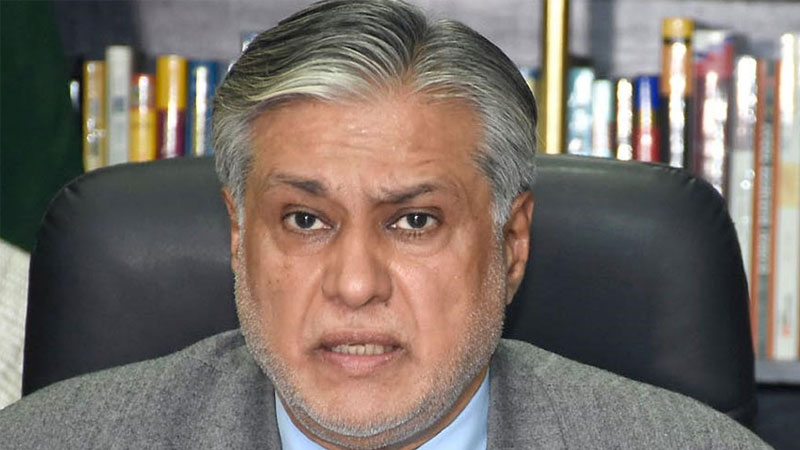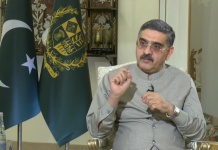
According to a NAB press release, under the ongoing investigation against Dar, Rs 500 million have been recovered from his accounts and transferred to the provincial government.
In Gulberg, Dar’s four-kanal house, worth millions of rupees, has been handed over to the Punjab government.
The Chairman NAB has stated that the house will be sold and the money transferred to the national exchequer, the press release added.
Last week, it was reported that the International Criminal Police Organisation (Interpol) has rejected a request by the Pakistan government to issue a red arrest warrant notice against Ishaq Dar, who is currently in London.
A private news channel quoted its sources in the Interpol as saying that the Pakistani government through the Interior Ministry had requested the Interpol to issue red arrest warrant for the former finance minister, but Interpol decided to reject the request after evaluating the evidence submitted by Dar. The former finance minister is accused of possessing assets disproportionate to his declared sources of income.
A reference against the former finance minister was filed by the NAB in light of the Supreme Court’s July 28 verdict in the Panama Papers case.
Dar had earlier been declared an absconder by the accountability court due to his continuous absence from the proceedings.
In 2017, Dar went to London to receive medical treatment for his heart condition, he has remained in the UK ever since.
Meanwhile, the Lahore High Court (IHC) on Thursday allowed Pakistan Peoples’ Party (PPP) leader Qamar Zaman Kaira to hold meeting with party’s co-chairman and former president Asif Ali Zardari.
While hearing the petition filed by PPP’s Kaira, the court has permitted him to meet the ex-president on November 25.
It is to be mentioned here that PPP lawyers and chairman Bilawal Bhutto Zardari had failed to convince Zardari to apply for bail plea in National Accountability Bureau (NAB) case against him.
Zardari said, “It’s my case and only I will decide about it. Let’s see what government of Pakistan Tehreek-e-Insaf (PTI) will do with me now.”
Afterwards, the senior PPP leaders had asked Bilawal to allow them to convince the party co-chairman on filing the bail.
Furthermore, the PPP leadership had also written an application to form private medical board for the checkup of the ex-president. PPP’s application stated that doctors have pointed out Zardari’s severe health issues, adding that uncontrolled sugar level can create problems for him. Government doctors also suggested to get help from a neurologist, the application told.
The PPP said that getting proper medical care is basic and legal right of every prisoner.
On October 22, 2018, Zardari was brought to Pakistan Institute of Medical Sciences (PIMS) from Adiala jail and admitted to the cardiology department’s VIP ward.
The former president had complaints of backache, weakness and anxiety. On the other hand, former prime minister Shahid Khaqan Abbasi was shifted back to Adiala jail after successful surgery in a private hospital. The Pakistan Muslim League-Nawaz (PML-N) leader Shahid Khaqan Abbasi was admitted to the private hospital on November 4, where he underwent a hernia operation.
PML-N leaders Murtaza Javed Abbasi, Mohsin Shahnawaz Ranjha and Barjees Tahir visited hospital and inquired about the health of the former premier after getting permission from the court.
Abbasi had been arrested by National Accountability Bureau (NAB) while en-route to Thokar Niaz Baig in Lahore on July 18 in a multi-billion-rupee case related to the award of a liquefied natural gas (LNG) import contract.
NAB sources said that Abbasi, in 2013, had awarded LNG import and distribution contract to the Elengy Terminal in violation of the Public Procurement Regulatory Authority (PPRA) rules and relevant laws.
An accountability court on September 26 had sent the former prime minister and Ismail to Adiala jail on judicial remand, in the Liquefied Natural Gas (LNG) scandal.













